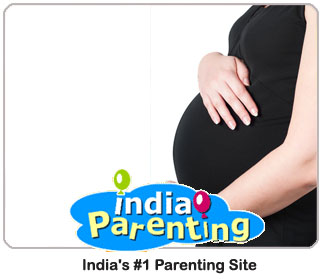 Name: julie
Name: julie
One thing I realized that I have been trying now for sometime and around the time I am supposed to have my periods, I get depressed- thinking oh god why I don't have kids, and all my life's probs. I was discussing this with a friend and she suggested I read about PMS.- that is Pre Menstrual Syndrome. Its basically due to hormonla imbalance in women in 20s and 30s and comes up before periods start and ends when u bleed! So ladies, our ttc efforts give the PMS a shot in the arm- an extra dose and makes us all the more cranky. So when we r trying to concieve and waiting for our periods, all those hormones go doubly crazy and make us more depressed. There is treatment- hormone replacement therapy and other drugs but since we are already over medicated with our TTC efforts, we mighht not want to try it now. However, the article says by making minor changes to lifetsyle we can manage it somehow. Like exercise more beofre your periods. Avoid caffiene etc as it causes anxiety. Avoid stressful situations.
Here is part of the article:
-------------------------------------
Treating Symptoms of PMS
Lifestyle Changes: Many women find that healthy lifestyle changes decrease symptoms of PMS. Exercise, three to five days per week, improves mood, and increases physical tone. Women who exercise regularly have fewer PMS symptoms. Eating less salt may minimize bloating and swelling. Also helpful is a healthy diet, rich in complex carbohydrates and low in simple sugar. Decreasing caffeine and alcohol intake may help irritability and mood swings. Relaxation techniques, such as meditation or yoga, decrease physical discomfort and stress.
Self Knowledge: A woman with mild PMS, are able to accept and adjust to her monthly changes in energy and mood. Although parts of the experience are unpleasant, she discovers that it helps her to view things from a different perspective. If she is impulsive or irritable before her menses, she may decide to defer important decisions for a few days. If she feels angry at a friend, she may write down the anger. If, after a few days, it still bothers her, she then responds to the anger. Some women learn this on their own. Others may seek counseling to help reduce stress and to learn ways to actively cope with the PMS.
Social Support: A supportive spouse or roommate can be a great help during low energy days or periods of irritability. Some women can take turns helping each other during vulnerable times. However, women who live or work closely together often go into synch: they have their menses at the same time. Depending on the situation, this can either be a support or a difficult time for the entire group.
Vitamins and Minerals: There is some evidence that Calcium may decrease many PMS symptoms. Moderate doses of Magnesium and Vitamin E may also be helpful. Controlled trials have failed to show nay benefit from high dose Vitamin B6. Additionally, high doses of B6 can cause peripheral nerve damage.
Treating Physical Symptoms: If lifestyle and dietary changes are not effective, there are other treatments. Diuretics help reduce fluid buildup and decrease bloating. Some women find that oral contraceptives decrease symptoms of PMS. This varies, depending on the dosage and mix of hormones in the particular pill. Non-steroidal Anti-inflammatory Drugs such as Ibuprofen, are helpful for PMS-associated pain.
Some useful stuff.















